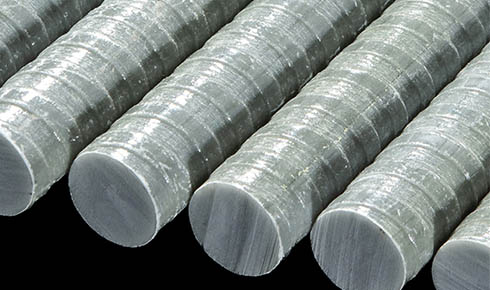
Fiberglass rebar, also known as glass fiber reinforced polymer (GFRP) rebar, is a type of reinforcing bar made from a composite material consisting of glass fibers embedded in a polymer matrix. This innovative material is gaining popularity in various engineering and construction applications due to its superior properties compared to traditional steel rebar.

Fiberglass rebar is designed to provide the tensile strength needed to reinforce concrete while offering several advantages over conventional steel rebar. It is known for its high strength-to-weight ratio, excellent corrosion resistance, and non-conductive nature, making it suitable for use in environments where steel would corrode or where electromagnetic interference is a concern.
Fiberglass rebar can replace steel rebar in concrete structures. It is particularly useful in situations where high strength is required, there is a risk of corrosion, or electromagnetic field induction currents need to be avoided. This product can be used both temporarily and permanently.
Construction: GFRP rebar is used in buildings, bridges, and tunnels to provide the necessary reinforcement for concrete structures. Its corrosion resistance is particularly beneficial in environments prone to moisture and chemical exposure.
Infrastructure: GFRP rebar is employed in the reinforcement of highways, pavements, and marine structures. Its durability and resistance to environmental degradation make it ideal for long-term infrastructure projects.
Marine Engineering: In marine environments, such as docks, seawalls, and offshore platforms, fiberglass rebar’s resistance to saltwater corrosion ensures the longevity of these structures.
Industrial Applications: GFRP rebar is used in chemical plants, wastewater treatment facilities, and other industrial settings where exposure to harsh chemicals would corrode traditional steel rebar.
Electrically Sensitive Areas: In locations requiring low conductivity and non-magnetic properties, such as airports, military facilities, and medical settings (e.g., MRI rooms), fiberglass rebar serves as an ideal material due to its insulation and electromagnetic interference prevention capabilities.
Environmental and Economic Benefits: Fiberglass rebar provides an environmentally friendly solution and significantly reduces repair and maintenance costs. Its lightweight nature, being only one-quarter the weight of steel rebar, also simplifies handling and installation, further reducing labor costs.
Soda feldspar, a common type of feldspar mineral, plays a crucial role in the manufacturing of fiberglass rebar. It is an essential ingredient in the production of glass fibers, which are a key component of GFRP rebar.

Soda feldspar is integral to the production of fiberglass rebar, significantly enhancing its mechanical properties, thermal stability, and corrosion resistance. In the manufacturing process, soda feldspar is a crucial component in the formation of glass fibers, which are embedded in the polymer matrix to create the composite material. The mineral contributes to the high tensile strength and elasticity of these fibers, ensuring that fiberglass rebar can withstand substantial loads and stresses without failure. This makes it an exceptionally durable material for reinforcing concrete structures.
Additionally, soda feldspar imparts excellent thermal stability to the fiberglass rebar. This is particularly important in applications where the rebar is exposed to varying temperatures, as the mineral helps maintain the structural integrity of the glass fibers under thermal stress, preventing degradation or softening that could compromise the material’s performance.
One of the most significant advantages of using soda feldspar is its contribution to the corrosion resistance of fiberglass rebar. The chemical stability provided by soda feldspar ensures that the glass fibers remain unaffected by moisture and chemicals, which can cause traditional steel rebar to corrode and fail. This makes GFRP rebar ideal for use in harsh environments, such as marine settings or chemical plants, where exposure to corrosive elements is a concern.
Overall, soda feldspar is essential in producing high-performance fiberglass rebar that combines strength, durability, and resistance to environmental factors, making it a valuable material in modern construction and engineering applications.

Whether you have questions or you would just like to say hello,Contact us!
Call Anytime:
+86 15837207537Send E-mail:
info@lsakminerals.comAddress:
Anyang City , Henan Province, China.